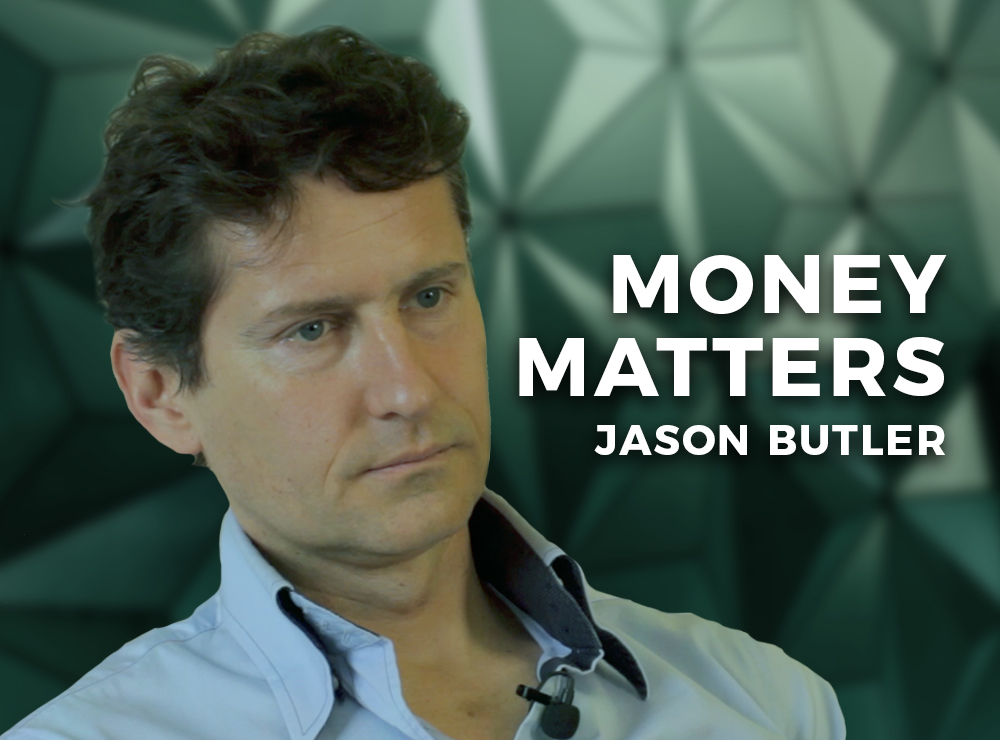
By JASON BUTLER
I recently heard the multimillionaire property investor and training entrepreneur Rob Moore speak for 2.5 hours at his Mind & Money event. I found Rob to be engaging, honest, insightful, and inspirational. While my personal values and financial situation are different to Rob’s, we both agree that how people think about money is one of the biggest barriers to them leading a full life.
When you use money in a way that is in line with your values and which enables you to live a life with purpose and fulfilment it can be an amazing enabler. But far too many people see money in a negative way, as something to be fearful and frightened of or worried about.
Whether it’s having a victim mindset and thinking that money is scarce or believing that having ‘too much’ is a bad thing and an embarrassment, some people are carrying around a lot a negative energy about money.
Money is merely a unit of exchange. It doesn’t dictate your value as a human being or your sense of identity. What it can do is enable you to meet both the basics of life (and avoid the misery of poverty and the associated stress) and allow you to have those little extras that make life a bit more fun and interesting.
While there are clearly lots of non-monetary ways to bring value to society such as through a vocation or volunteering, money can also be one way of measuring the value you bring to society, whether through business activity, artistic endeavours, developing scientific breakthroughs or philanthropic efforts.
Coveting money for money’s sake is a loser’s errand. You need to make money your servant, not your master. Making money and building financial wealth as a result of creating and delivering value to others is a virtue. And enjoying money that you make over and beyond what you need for the basics is nothing to be ashamed of. And using that wealth to make a real difference to wider society is also something to be proud of.
So, if you’ve dispelled those negative money thoughts and believe that money can be a force for good, the next step is to get better at asking for things that will help you realise your financial potential.
You need to get comfortable and good at asking for things like:
- A pay rise or better benefits if you are employed
- Increased prices if you sell goods or services
- Financial gifts or loans from your family to help you help yourself (i.e. not for consumption)
- Training grants or other support to improve and upgrade your skills
- A price reduction when buying a house, car or other big-ticket items
- A reduction in the cost of subscriptions, premiums and other costs of living or business
- Meetings with potential clients, customers, business associates and suppliers
- Honest feedback from people you trust and respect
- A fair price for the value you deliver
- Help and support from people who you think could help you
If you see money in a positive light, the only reason that you won’t ask for those things that can help you get ahead financially is because you fear the pain of rejection more than you want the benefits of financial success.
I can honestly say that getting a No from my many asks over the years never worried me. Yes, they sometimes made me frustrated, disappointed, even annoyed, but I never feared and never tried to avoid asking.
But it cuts both ways. When people ask you for things, you need to engage with their request, and where it is possible and reasonable for you to do so try to find a good resolution or outcome.
If you are polite, respectful and clear in the way you ask for things, you have nothing to lose and everything to gain.
JASON BUTLER is a former financial adviser, based in Suffolk. He is a personal finance columnist for the Financial Times, and is Head of Financial Education at Salary Finance. You can find out more about him on his website.
Jason is a regular contributor to TEBI. Here are three of his recent articles you may have missed:
Match your spending with your values
An emergency fund is a necessity, not a luxury










